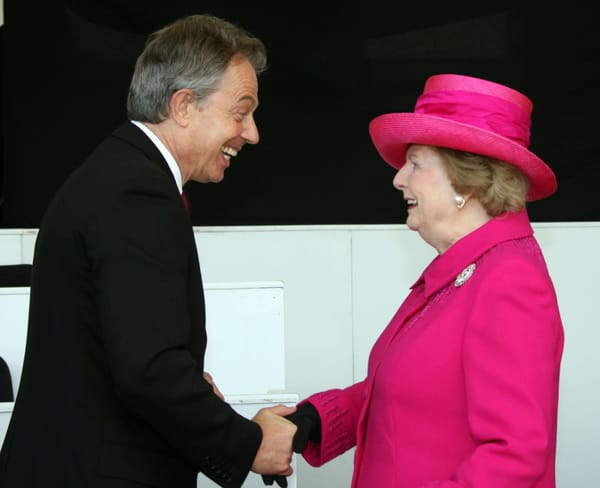Last month saw the 25th anniversary in Britain of the landslide election of Tony Blair’s Labour government. One of Blair’s first acts was to hand over control of monetary policy to the Bank of England. Granted “operational independence,” the central bank was tasked with ensuring that inflation did not rise above 2.5 percent (later 2 percent).
Though the move took many by surprise—Labour hadn’t heralded it in its election manifesto—its supposed sagacity is now almost universally accepted across British politics. Few policymakers and commentators believe that such weighty matters as control of the money supply ought to fall squarely within the bailiwick of elected politicians, rather than unaccountable officials.
But as the global aftershocks of the Great Recession continue to reverberate, even at 14 years’ distance, and as our politicians now flail and flounder in the face of a cost-of-living crisis, it is time to reappraise not only the concept of central-bank independence, but the general propensity of the Western political class to cede evermore of its powers to technocrats and privateers.
The roots of this propensity lie in an ideological battle that began just under half a century ago, as the world was grappling with another economic crisis. This is the fight between those who maintain that the proper role of elected governments is, in good times and bad, to use every tool at their disposal to manage the economy in the interests of ordinary people, and those who, in viewing government as always the problem and never the solution, seek to roll back the frontiers of the state and allow the market to reign supreme. According to this latter group, usually disciples of Friedrich Hayek and Milton Friedman, the ambit of government in economic matters should extend barely any further than ensuring price stability. Once that is achieved, politicians should get out of the way and leave the rest to those who know better.
